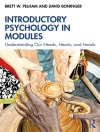The possibility of bringing the insights of modern political theory to bear on the problems of human ecology has long been plagued by disagreements over the category of nature itself. But with Denaturalizing Ecological Politics, Andrew Biro has found a way of rescuing environmentalism from the ideological trap of naturalism.
Biro develops an environmental political theory that takes seriously both the materiality of the ecological crises generated by industrial and post-industrial society and the anti-foundationalist critiques of ‘nature’ developed in postmodern social theory. He argues that the theoretical basis for ecological politics can be better advanced through the lens of alienation from nature, sidestepping some of the pitfalls of debates over conceptions of nature itself.
Biro traces the development of the concept of alienation from nature through four modern political thinkers – Rousseau, Marx, Adorno, and Marcuse – each of whom are read as arguing that human beings are not biologically separate from the rest of nature, but are nevertheless historically differentiated from it through the self-conscious transformation of the natural environment. In so doing, Biro provides the starting point for a ‘denaturalized’ rethinking of ecological politics.












